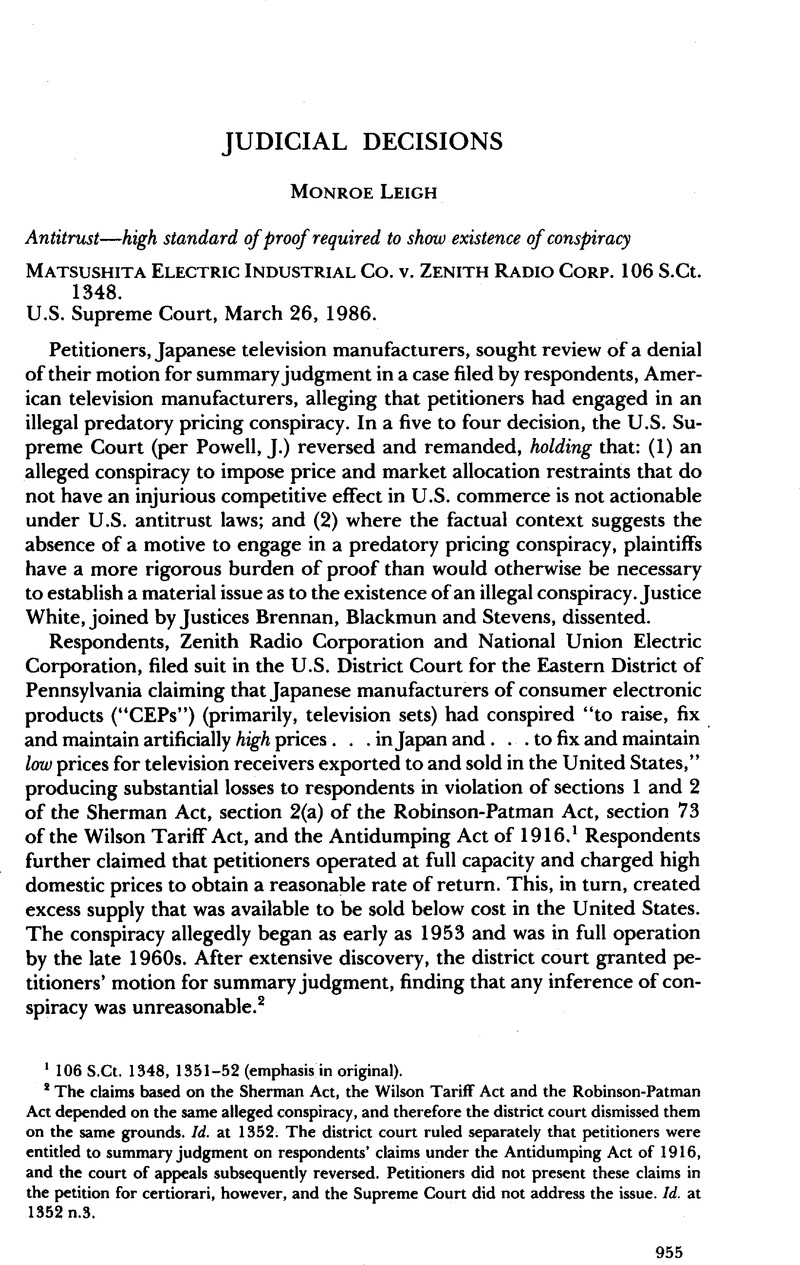Published online by Cambridge University Press: 27 February 2017

1 106 S.Ct. 1348, 1351–52 (emphasis in original).
2 The claims based on the Sherman Act, the Wilson Tariff Act and the Robinson-Patman Act depended on the same alleged conspiracy, and therefore the district court dismissed them on the same grounds. Id. at 1352. The district court ruled separately that petitioners were entitled to summary judgment on respondents’ claims under the Antidumping Act of 1916, and the court of appeals subsequently reversed. Petitioners did not present these claims in the petition for certiorari, however, and the Supreme Court did not address the issue. Id. at 1352 n.3.
3 The appellate court reversed a decision by the federal district court excluding evidence proffered by respondents to demonstrate the existence of the conspiracy. The Supreme Court did not review the admissibility issue.
4 Both the court of appeals and the Supreme Court determined that it was unnecessary to address petitioners’ claims that they could not be held liable under the antitrust laws for conduct that was compelled by a foreign sovereign because the facts of the case did not present a sovereign compulsion issue. 106 S.Ct. at 1353, 1362.
5 Id. at 1354.
6 Id. at 1355–56. Rule 56(e) of the Federal Rules of Civil Procedure governs the standard of proof for a summary judgment motion and provides, in pertinent part:
When a motion for summary judgment is made and supported as provided in this rule, an adverse party may not rest upon the mere allegations or denials of his pleadings, but his response, by affidavits or as otherwise provided in this rule, must set forth specific facts showing that there is a genuine issue for trial. If he does not so respond, summary judgment, if appropriate shall be entered against him.
7 106 S.Ct. at 1353.
8 Id. at 1362.
9 The Court observed that “RCA and Zenith, not any of the petitioners, continue to hold the largest share of the American retail market in color television sets.” Id. at 1359.
10 Id.
11 Id. at 1363.
12 Id. at 1360.
13 Id. at 1364.